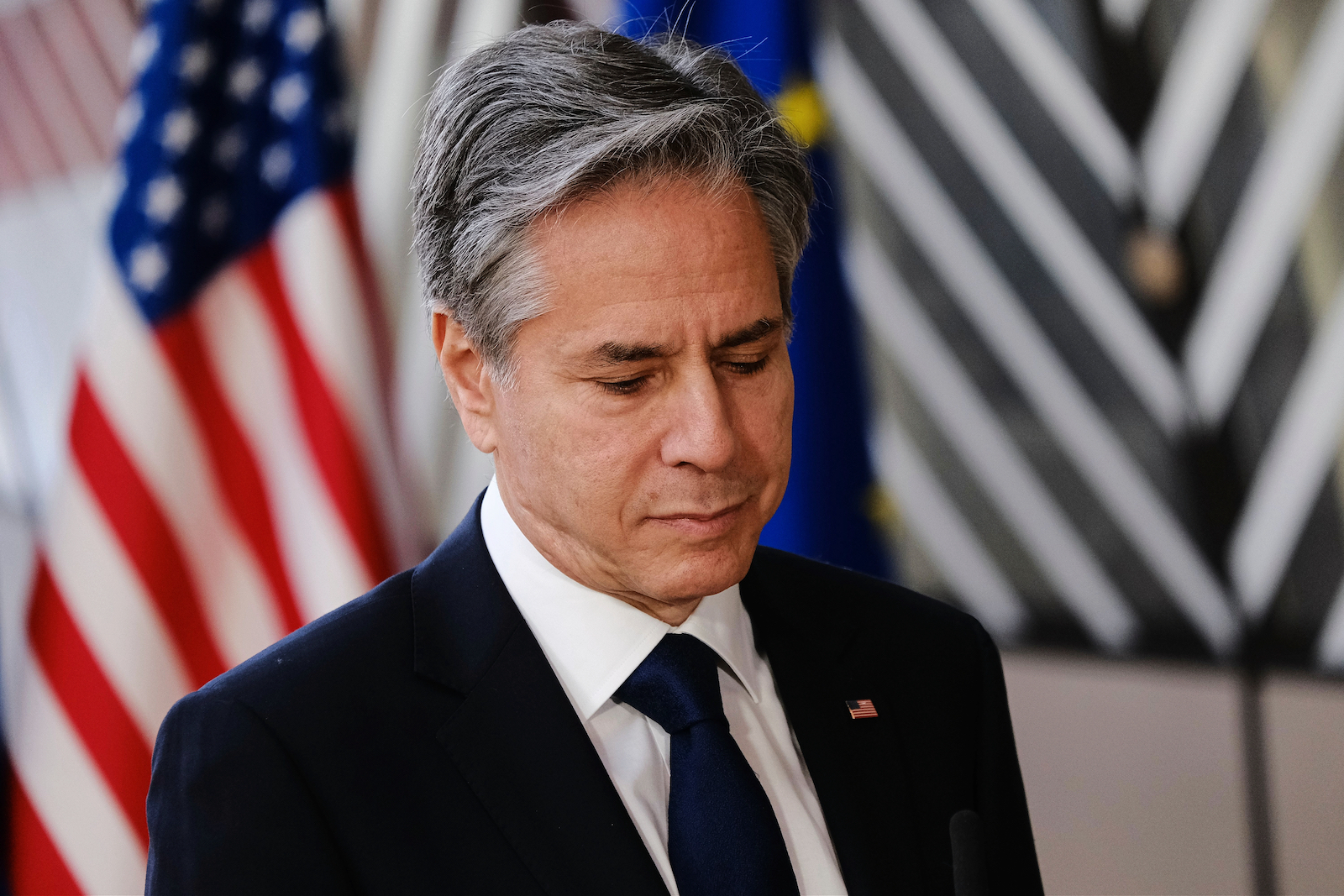
Blinken’s China Visit has Distant Echoes of Munich ’38
BEIJING, China – It’s not Munich 1938, but U.S. Secretary of State Antony Blinken’s first visit to China this week does have a whiff of “peace in our time.”
It is perhaps sobering to realize that despite U.S.-China ties being hailed as the world’s key bilateral relationship, Blinken is the most senior Biden administration official to travel to China, and it marks the first visit by a U.S. Secretary of State to Beijing since October 2018.
There is much to discuss.
Warships and, less commented on but even more dangerous, submarines from both the U.S. and China have been playing a game of chicken in the Taiwan Strait and the South China Sea. China claims the area while the U.S. insists it is international waters. Technically, the U.S. is right, but ownership of these waters has been part of China’s diplomacy and narrative since before the communists seized power in 1949.
The meeting itself is a huge step forward as it provides a setting to ease tensions and strike trade agreements. But this meeting is about appearances, not substance.
There is, though, a domestic agenda that Chinese President Xi Jinping is determined to follow through on and, unlike other Chinese leaders since Mao, tense relations with the U.S. won’t do him any harm.
The days of the black and white cat are gone. That famous phrase credited to Deng Xiaoping as he launched his reforms, “It doesn’t matter if the cat is black or white so long as it catches mice,” has been binned. Today, the cat’s color matters a great deal. “The get rich is glorious” social contract of the post-Tiananmen Square era of 1989 has been ditched as Xi tries to secure his place in history directly behind Mao and above Deng. Now it is about the strength of the party, not the economy, stupid.
And through this realignment, Xi demands a place in history above that of Deng because, according to the accepted doctrine, the party is in its third great development phase. Mao brought the communists to power. Deng made the country richer. Xi, according to this theory, seeks to make China stronger.
And this is the conundrum. What does this mean? China, with a weakening economy, can only appear strong by having tense relations with the U.S. If it acts like an ally, it runs the risk of being seen as subservient.
Xi will not be the first ruler to divert attention from his mishandling of the economy by standing up to a “foreign threat.” Nationalism knows no boundaries. Xi is not under threat at home but he is not popular and there is a feeling that under his watch an opportunity has been missed.
Structural problems that should have been addressed have been allowed to fester. China’s declining population is hampering growth. Single-child mothers have no incentive to have another child. Hardly surprising, when kindergarten fees in the major and generally wealthier coastal cities cost as much as college fees in the U.S. or Britain.
Xi has adopted a “look over there approach.” Hong Kong has been forced to abandon its policy of “one country, two systems.” Border clashes with India are becoming more common. The South China Sea has been militarized. An invasion of Taiwan seems a distinct possibility. China has the world’s largest army and navy.
Xi has turned his attention to the Middle East to undermine America’s influence with his involvement in ensuring Saudi-Iranian rapprochement. This was apparent at a meeting in Beijing of the countries’ foreign ministers in April.
China has peaked economically and its ambition of surpassing the U.S. as the world’s biggest power, under its own steam, seems less inevitable. What cannot be discounted is that the U.S. commits what would be welcomed in Beijing as an act of gross self-harm by electing Donald Trump again. Beijing feels confident that should the U.S. stumble under another spell in office by the “hair apparent” China could, by default, easily pick up the pieces and claim economic supremacy.
But with or without Trump, Beijing, reacting to a mixture of feeling embarrassed at its declining economic clout and a sense that the time is right for action to achieve its destiny, might opt for bolder and more reckless behavior on the global stage.
It may not be Munich but these few days in Beijing may, like that event in 1938, yet be seen as a prelude to a more belligerent period.

